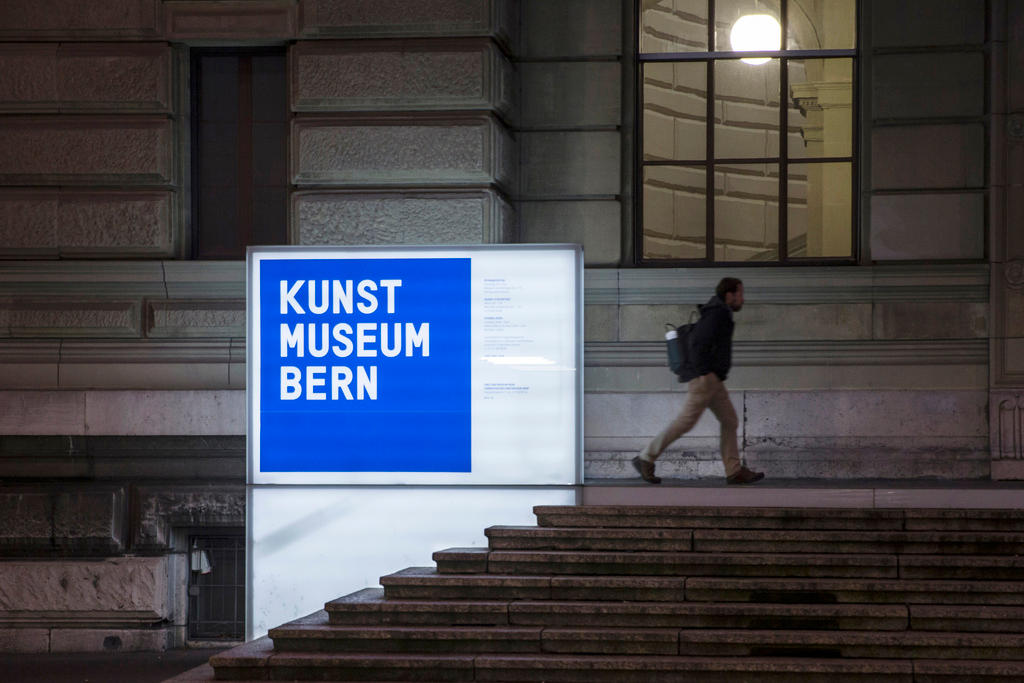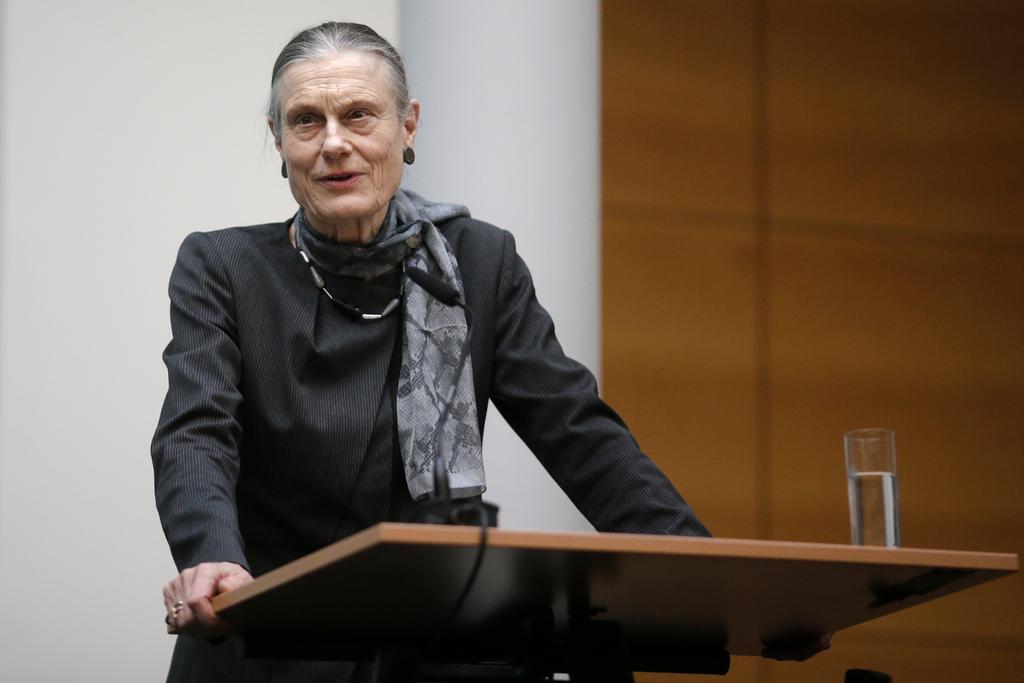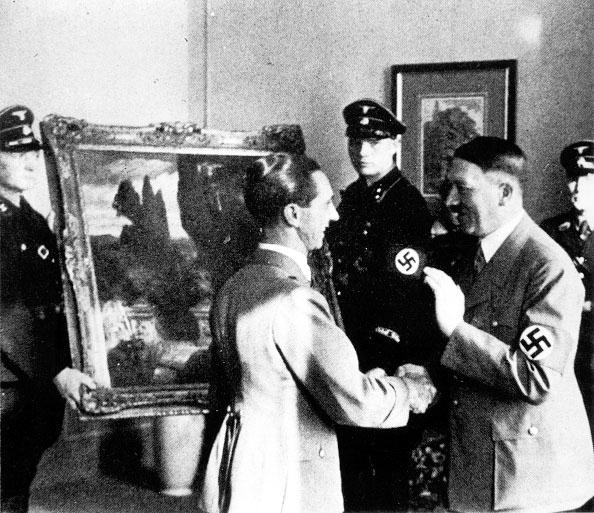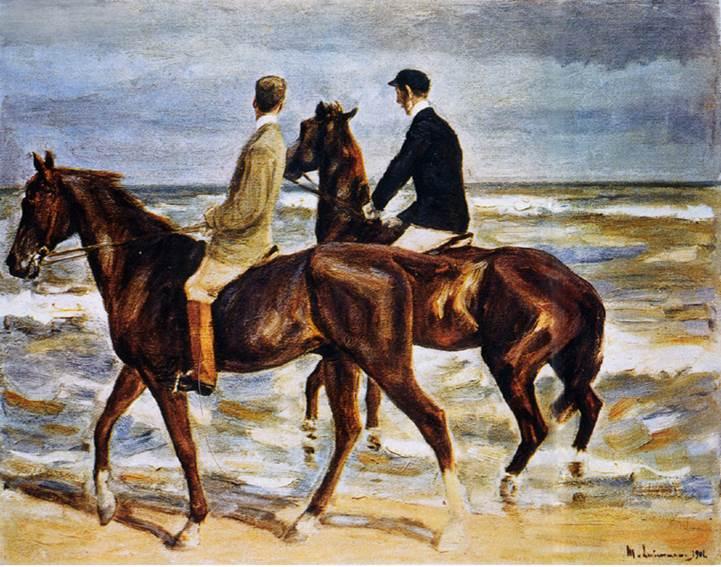Gurlitt art collection can finally head to Bern

Cornelius Gurlitt, son of one of Hitler’s art dealers, was of sound mind when he bequeathed his extensive art collection to Bern Museum of Fine Arts in 2014, a Munich court has ruled. A cousin had launched an inheritance counter-claim. Bern can now take possession of the collection.
“We’re delighted and relieved by the court’s decision,” said Marcel Brülhart from the Bern Museum of Fine ArtsExternal link, adding that the inheritance had so far cost the museum around CHF1.5 million ($1.46 million).
The reclusive Gurlitt, the son of Nazi art dealer Hildebrand Gurlitt, left a will handing the significant collection to Bern’s Museum of Fine Arts when he died aged 81 in April 2014.
The collection consists of more than 1,500 paintings, drawings, lithographs, woodcuts and posters by artists including Matisse, Picasso, Renoir and Monet.
The museum said it would accept the donation in November 2014, but the decision was controversial for two reasons: it is believed that some of the art works were probably stolen from victims of the Holocaust, and Uta Werner, one of Cornelius’s cousins, contested the contents of Gurlitt’s will, saying Cornelius was delusional when he wrote it.
On Thursday the Munich court said in a statement it was not convinced that Cornelius Gurlitt was of unsound mind or suffering from dementia when he drew up his will.
The court did not open the way to Germany’s Federal Supreme Court, therefore the decision is legally binding.
It does not mean, however, that the inheritance case is necessarily over. The Munich court said its decision had no binding force in any civil lawsuit.
‘Interests of Germany’
Uta Werner said she regretted the decision, believing the court had failed to recognise the “extent of her cousin’s confusion”.
In a statement read by her spokesman, she said Cornelius Gurlitt was convinced he had to save his paintings from the Nazis. “That the only way he thought he could do this was by sending the collection to Switzerland is an unquestionable expression of his sad confusion,” she said.
Werner added that a large part of the collection represented a part of German history “that reminds people of terrible times. The place where wrongs were committed should today be the scene for explanations and reparations. It was for the own best interests of our country that we would have liked to see the pictures in the hands of museums and academics in Germany”.
Werner’s spokesman said the family would consult its lawyers and only then announce how it would proceed.
Timeline
September 22, 2010: German custom officers carry out a routine search of passengers on a train from Switzerland and find 77-year-old Cornelius Gurlitt with €9,000 (CHF10,800) in cash (below the €10,000 reporting limit). Suspicions are raised of tax evasion.
February 28, 2012: The authorities enter Gurlitt’s flat in Munich and discover up to 1,400 works of art, many thought to have been lost in the war. The discovery is kept secret, while an expert gets to work on the art’s provenance.
November 3, 2013: German magazine Focus reports the story, which gets headlines around the world.
January 28, 2014: A task force reveals that following an initial examination, 458 works are suspected of being looted.
February 10, 2014: More than 60 valuable paintings, including works by Picasso, Renoir and Monet, are found in Gurlitt’s house in Salzburg. It later turns out the Austrian property contained 238 works in total.
April 7, 2014: Gurlitt’s lawyers reach an agreement with the German government, whereby Gurlitt would voluntarily return looted artwork to the heirs or previous owners.
May 6, 2014: Gurlitt dies aged 81 in his Munich flat, having not seen his paintings since they were confiscated two years previously.
May 7, 2014: Gurlitt’s will names the Bern Museum of Fine Arts sole heir of the collection. The museum says it will take a decision on accepting the collection by the end of the year.
November 21, 2014: Uta Werner, Cornelius Gurlitt’s cousin, contests the will, saying Cornelius was delusional when he wrote it. If successful, she would be entitled to half his legacy. The other half would go to her brother (who didn’t challenge the will and wants Bern to keep it).
November 24, 2014: The board of the Bern Museum of Fine Arts said it would accept the collection.
December 15, 2016: Uta Werner loses case.

In compliance with the JTI standards
More: SWI swissinfo.ch certified by the Journalism Trust Initiative













You can find an overview of ongoing debates with our journalists here . Please join us!
If you want to start a conversation about a topic raised in this article or want to report factual errors, email us at english@swissinfo.ch.